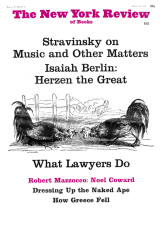To the Editors:
Shakespeare’s sardonic picture of the spreading effects of a pointless war, Troilus and Cressida, may be read as an uncannily apt tract for the times. I don’t suppose your readers need to be preached to, even by Shakespeare, but perhaps they would like a few texts that prophetically express our nightmares.
The discredited cause:
If we have lost so many tenths of ours,
To guard a thing not ours, nor worth to us,
Had it our name, the value of one ten,
What merit’s in that reason which denies
The yielding of her up?
The discredited leader:
The specialty of rule hath been ne- glected;
And look how many Grecian tents do stand
Hollow upon this plain, so many hollow factions
The appeal to honor and patriotism:
The reasons you allege do more conduce
To the hot passion of distempered blood,
Than to make up a free determina- tion
Twixt right and wrong….
….Thus to persist
In doing wrong extenuates not wrong,
But makes it much more heavy. Hector’s opinion
Is this in way of truth. Yet ne’er- theless,
My spritely brethren, I propend to you
In resolution to keep Helen still;
For ’tis a cause that hath no mean dependence
Upon our joint and several digni- ties.
The course of the war:
Force should be right, or rather right and wrong,
Between whose endless jar justice resides,
Should lose their names, and so should justice too.
Then every thing includes itself in power,
Power into will, will into appetite,
And appetite, an universal wolf,
So doubly seconded with will and power,
Must make perforce an universal prey,
And last eat up himself.
A pause in the descent:
The dragon wing of night o’er- spreads the earth,
And stickler-like the armies separ- ates.
My half-supped sword that frankly would have fed,
Pleased with this dainty bait, thus goes to bed.
Francis Fergusson
Kingston, New Jersey
This Issue
March 14, 1968



